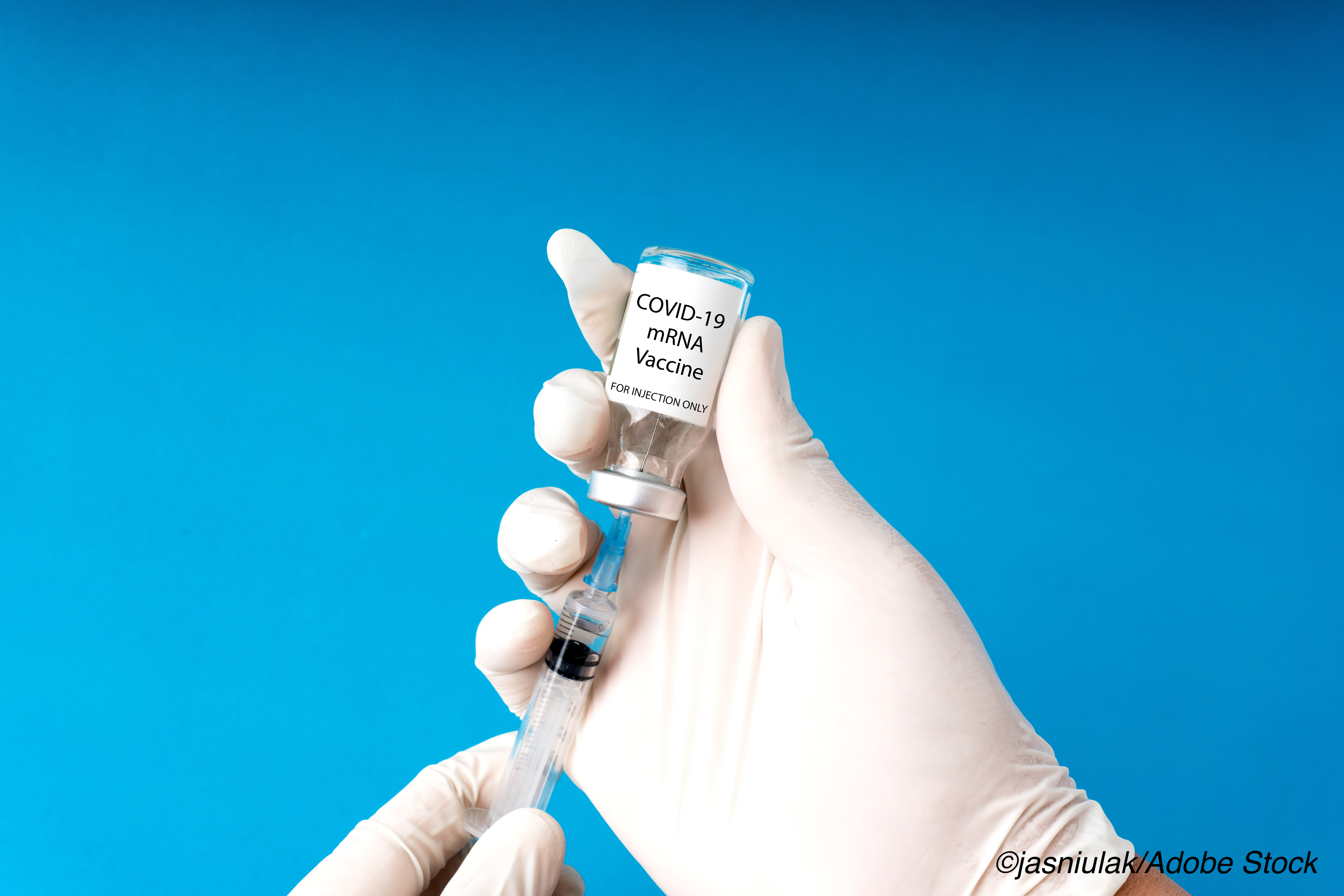
New research offers some of the first direct evidence showing mRNA Covid-19 vaccines to convey long-term protection against severe illness related to SARS-CoV-2 infection.
The study findings, published Monday in the journal Nature, suggest that people vaccinated with the BNT162b2 (Pfizer/BioNTech) or mRNA-1273 (Moderna) vaccines may not need booster doses in subsequent months or even years, so long as new viral variants continue to respond robustly to them.
Data released earlier this month by health officials in the United Kingdom showed two doses of the BNT162b2 vaccine to be 96% effective against Covid-19 hospitalization associated with the highly contagious and rapidly spreading Delta (B.1.617.2) variant.
The ChAdOx1 nCoV-19 (Oxford-AstraZeneca) double-stranded RNA vaccine was found to be 92% effective against hospitalization associated with the variant, which is widely projected to be the dominant strain of the novel coronavirus in the U.S. within months.
In their newly published study, immunologist Ali Ellebedy, PhD, of Washington State University in St. Louis (WUSTL), and colleagues, examined the dynamics of antibody secreting plasmablasts (PB) and germinal center B cells induced by the mRNA vaccines.
They found that people fully vaccinated (2-doses) with the vaccines showed persistent germinal centre (GB) B cell responses, which indicated what the researchers termed “robust humoral immunity.”
“This is the first study to provide direct evidence for the induction of a persistent antigen-specific GC B cell response after vaccination in humans,” they wrote.
They examined the antigen-specific B cells responses in peripheral blood and draining lymph nodes in 14 people who received two doses of the Pfizer-BioNTech vaccine, which encodes the full-length SARS-CoV-2 spike gene.
Circulating IgG- and IgA-secreting plasmablasts targeting the spike protein were found to peak within a week of receiving the second vaccine dose and they then declined. The circulating imunoglobulins became undetectable 3 weeks after full vaccination.
The researchers further noted that the plasmablast responses “preceded maximal levels of serum anti-spike-binding and neutralizing antibodies to an early circulating SARS-CoV-2 strain as well as emerging variants, especially in individuals previously infected with SARS-CoV-2, who produced the most robust serologic responses.”
Examination of fine needle aspirates of draining axillary lymph nodes identified GC B cells that bound spike protein in all samples collected after primary immunization.
High levels of the spike-binding GC B cells and plasmablasts were found in draining lymph nodes for at least 12 weeks after the second dose was delivered.
“The persistence of S-binding GC B cells and PBs in draining [lymph nodeds] LNs is a positive indicator for induction of long-lived plasma cell responses,” the researchers wrote. “Future studies will be needed to examine whether mRNA vaccination induces a robust S-specific long-lived plasma cell compartment in the bone marrow. As part of such studies, it will be critical to generate a comprehensive set of mAbs derived from PBs and GC B cells isolated from multiple time points to define the breadth of the B cell response elicited by this vaccine. None of the 14 participants in our study who underwent FNA of draining LNs had a history of SARS-CoV-2 infection. Thus, further comparison of vaccine-induced GC responses from naive and previously infected individuals will be informative. Finally, the work presented here focuses on the B cell component of the GC reaction. A robust T follicular helper response sustains the GC reaction. As such, studies are planned to interrogate the magnitude, specificity, and durability of the T follicular helper cell response after SARS-CoV-2 mRNA vaccination in humans.”
The study did not include people with compromised immune systems or others who may have inadequate initial responses to vaccinations.
Research by Ellebedy and colleagues published last month in Nature offered more preliminary evidence of lasting immunity against the SARS-CoV-2.
Fifteen of 19 non-vaccinated participants in that study who had recovered from mostly mild Covid-19 showed evidence of SARS-CoV-2-specific bone marrow plasma cells (BMPC) 7 to 8 months following infection, with no spike-specific BMPC detected in non-vaccinated controls who had not had Covid-19.
Spike protein-binding BMPCs were inactive, which “suggests that they are part of a stable compartment,” the researchers wrote.
“Consistently, circulating resting memory B cells directed against SARS-CoV-2 spike protein were detected in the convalescent individuals,” they added.
This research suggested that mild SARS-CoV-2 infection induces a long-lived BMPC response. Spike protein-binding memory B cells in the blood of those who had recovered from Covid-19 were present at similar frequencies to those directed against influenza virus hemagglutinin.
“Overall, our data provide strong evidence that SARS-CoV-2 infection in humans robustly establishes the two arms of humoral immune memory: long-lived BMPCs and memory B cells,” they wrote.
-
Full vaccination with an mRNA Covid-19 vaccine was associated with persistent germinal centre B cell responses, which indicated “robust humoral immunity.”
-
The study is the first to provide direct evidence for the induction of a persistent antigen-specific GC B cell response after vaccination against Covid-19 in humans.
Salynn Boyles, Contributing Writer, BreakingMED™
The Ellebedy laboratory received funding unrelated to the current study from Emergent BioSolutions and from AbbVie. Ali Ellebedy reported being a consultant for Mubadala Investment Company and the founder of ImmuneBio Consulting. Other researchers reported having a licensing agreement with AbbVie unrelated to the current study. A patent application related to this work has been filed by Washington University School of Medicine. The Icahn School of Medicine at Mount Sinai has filed patent applications relating to SARS-CoV-2 serological assays and NDV-based SARS-CoV-2 vaccines, which list researcher Florian Krammer as co-inventor.
Cat ID: 926
Topic ID: 79,926,933,926,927,928,934


